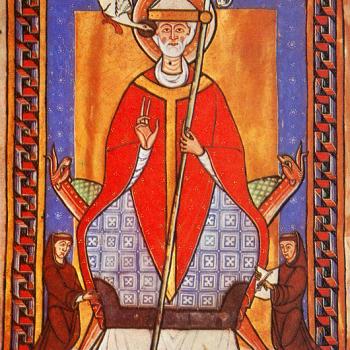Who could disagree with his assessment? The people did certainly test and try their God. But is it not also clear that Moses, too, tested and tried his God? Did they not all demand a sign that they were not alone in the wilderness, facing a certain death? The final question is the key to this passage: "Is YHWH among us (or 'near us') or not?" (Ex. 17:7). And that of course is our modern question, too. And the query has become ever more insistent in our time of thorough questioning of all authority, all tradition, all previous certainties. And in the light of that question, we demand a sign. If there was a God, that God would not have let my child die, my addiction destroy my life, allow that war, that famine, that plague. We are all in the desert of Sin with that question on our lips: is YHWH near us or not?
We Christians simply cannot stop asking this question, nor should we. Yet, our demands for some sort of sign of God's presence—a tortilla chip with the face of Jesus, an ancient cloth with a blood-stained portrait magically projected on it, a whirling sun in the former Yugoslavia, a crutched-filled grotto in rural France, a huge cathedral in Mexico on the site of an appearance of the Virgin Mary to a lucky peasant, and on and on—seem somehow pathetic. In our scientific age, where only conclusive proof will do, such experiences give in to the times. Books about proofs of heaven hit bestseller lists, but are little better than modern Lourdes, places that offer certainties that finally cannot be obtained.
Author's Note: Remember the Baltic in September! I will lecture on Job, and you will see some of the great capitals of the world. We depart from Copenhagen on September 3. Full details are at eo.travel. I do hope to see you there!





